Plugged in Pro Bono: Innovation, Law Tech & Pro Bono in Wales
From the comfort of my makeshift home office, fully equipped with blankets and tea, I joined 30 or so participants and tuned into the event ‘Plugged in Pro Bono: innovation, Law Tech & Pro Bono in Wales’. Who says you need to take your slippers off to have a productive day? As part of the 20th annual Pro Bono week, the event focused on - you guessed it – all things pro Bono. In particular, how research carried out by Swansea Law Clinic and the Legal Innovation Lab Wales (LILW) can be used to further enable access to justice.
To set the scene, the event revolved around a 6-month research project led by the Solicitors Regulation Authority (SRA) who were awarded funding through the Regulators Pioneer Fund (RPF). The aim of the event was to provide further insight into the project, which is currently underway, with an emphasis on pro bono work and how technology can help us reach solutions to the challenges identified during the project.
And those aims were certainly met through discussions with a panel consisting of Stefano Barazza from the LILW, Professor Richard Owen representing the Swansea Law Clinic, and Liz Withers from the SRA.
Liz Withers pointed out that the aim of the project is, in part, to provide practical results, but also to identify issues that can be taken forward as legacy planning for the future. She highlighted several interesting points that will hopefully be brought to light through the research, such as the areas technology can make a difference to legal advice work. It may be the case that the project creates more questions than answers, but those questions will be essential to developing meaningful methodologies for future study.
Following on from this, Prof. Richard Owen asked us to consider the types of issues faced with regard to access to justice. The most dominant is perhaps that we must be mindful of, and flexible with, groups who will find access to justice difficult due to digital poverty and exclusion. It is vital that we remember face to face communication is essential for building trust with more vulnerable populations, while also ensuring that online legal resources are clearly signposted and accessible.
To combat these issues, it would be ideal for the legal aid and free legal advice sectors to work more closely together. This would mean that clients eligible for legal aid who approach the legal advice sector could be easily referred. Luckily, there is already a stable collaboration infrastructure in place for the advice sector which can be further built upon.
It’s true that LegalTech can improve the affordability of accessing legal services, and one of the real advantages of this project is that it creates a sort of conference table for academics and professionals to gather round and talk about the pertinent issues.
As the discussion on the topic of the benefits that legal technologies can bring to the table continued, Stefano highlighted that, although the legal advice sector can benefit from the efficiency that technologies offer, one significant issue lies in understanding the problems that are faced by advice services. Once researchers identify these issues, it will be possible to provide relevant research and develop technologies that can be taken forward in the future.
Almost echoing this sentiment, one participant asked the panel how he could help. He works in the technology field and runs a legal tech company.
"How can I help?" seems like such a basic question but it’s arguably the most complex one. The people with the knowledge to build the solutions don't necessarily understand the problems. Just as those who witness the issues every day may not know how to build the solutions. Unsuccessful collaboration is like trying to complete a 1000-piece jigsaw with someone without knowing what pieces the other person has in their hands. In other words, it has the potential to be unnecessarily complex when, between them, both parties have all the tools they need to solve the problem. The co-creation of tools is essential. That is why, as Prof. Richard Owen rightly raised, there is a need to coordinate our responses to ensure liaison is effective and leads to positive change.
There is often the tendency for researchers and technology professionals to think we need to look outside the box. But sometimes we can use simple technologies and design methodologies to solve problems- solutions that lie firmly within said box. Afterall, innovation is not invention. It doesn’t have to be a completely new technology, but the idea must add value.
As a researcher, the possibilities are exciting. Although the ‘exit meeting’ button quickly transported me back to my empty makeshift office, the thoughtful points raised by the speakers stayed with me while I put the kettle on. It will be interesting to use the results of the project to consider how LegalTech can progress further and how we can use the technologies at our disposal to create powerful solutions. The answers are there, waiting to be found. Above all the solutions need to be relevant; they need to be affordable, and they need to be futureproof.

